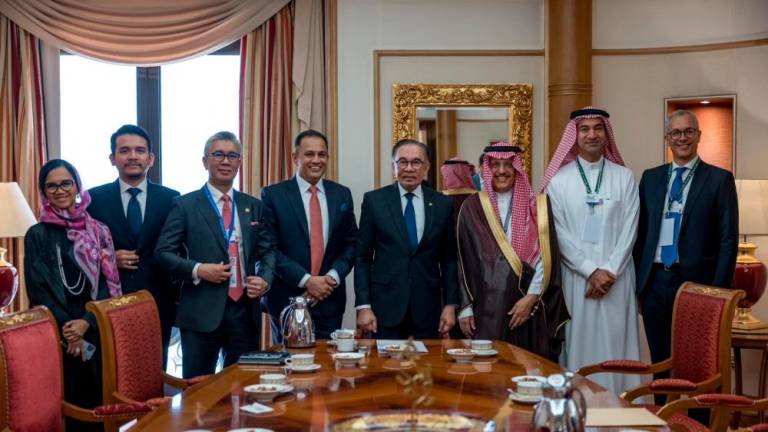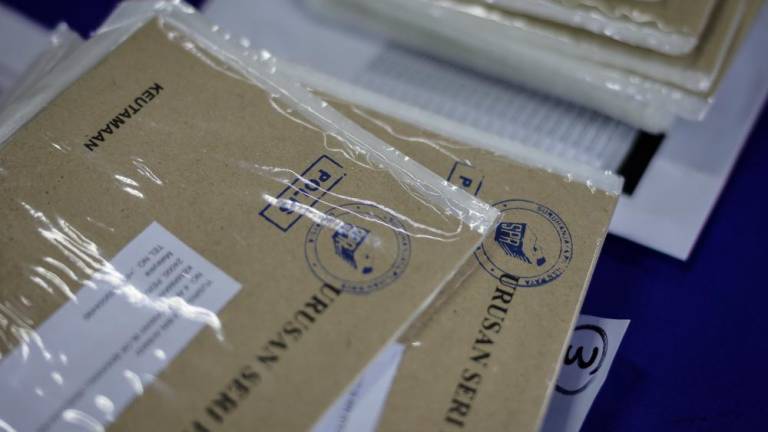PETALING JAYA: Only 22% of Malaysian employees surveyed would prefer to work from office full-time after Covid 19 restrictions are eased, according to the Ernst & Young Consulting Sdn Bhd (EY) 2021 Work Reimagined Employee Survey.
It said the majority of respondents would prefer to work anywhere (23%), work remotely full time (29%), or in a hybrid work arrangement such as a mix of in-office and remote working (25%), consistent with preferences revealed by employees surveyed from around the world.
The survey found that among Malaysian respondents, nine in 10 employees want flexibility in where and when they work, in the absence of which almost half or 45% would consider leaving their job post Covid-19 pandemic. Given the choice between two jobs, 48% would choose flexibility in when they work and 47% would choose flexibility in where they work.
It said employees would want to work between two and three days remotely after the pandemic, while more than a third (36%) of respondents would want a shorter working week altogether. The majority or 63% believe their productivity can be accurately measured irrespective of location.
However, there is a strong perception (72%) that this arrangement would impact their access to career opportunities.
Despite the apparent willingness to move jobs for more flexible working arrangements, most respondents (75%) are satisfied with their jobs, and almost all (89%) plan to stay in their current roles for the next 12 months.
EY Asean and Malaysia people advisory services leader Tan Lay Keng said the Covid-19 pandemic has caused a “major shift in where we work, when we work, and how we work”.
In a statement, she said employers with hybrid work arrangements and which provide flexibility for employees to work anywhere and anytime will be ahead of the curve and are likely to have better employee attraction, retention and satisfaction in the long run, which can positively impact the business.
“Employees surveyed saw employers taking steps to enable them to work productively and to better manage their workload in this new hybrid environment. By investing in collaboration technology, providing employee benefits that support home office set-up and building a strong teaming culture, these employers are likely to be more successful in this new normal,“ she said.
The survey also canvassed attitudes to existing work practices, with employee respondents broadly positive about the impact of remote working. Almost half (54%) said their organisational culture had changed and improved during the course of the Covid-19 pandemic, while only 32% believe it had worsened.
Beyond its impact on culture, the majority of respondents agreed that a new mix of onsite and remote work would increase the company’s productivity (67%) and creativity (71%).
As employers adapted to offer hybrid work arrangements, they have had to change their work practices to better manage productivity during the pandemic.
Respondents observed changes ranging from establishing “meeting or email-free” times for the team or company (46%), using productivity tools (46%), setting aside time on calendar for individual or focused work (45%), establishing clear working hours for work-life balance (45%), and reducing meeting times to 25 to 45 minutes to allow for breaks in between meetings (35%).
The prospect of increasingly widespread flexible working is leading to more demands for technology, both on-site and in the home office. 81% of respondents say they want better technology in the office such as faster internet and video conferencing, and more than half say they want companies to upgrade at-home hardware such as extra monitors and headsets (59%), and would like reimbursement for high-speed internet and phone expenses (51%).
However, despite the shift towards new ways of working and the rapid adoption of virtual meeting technology, 63% would like to travel for business moderately to extensively after the Covid-19 pandemic.
“As companies seek to reposition for growth in the recovery from the pandemic, their talent is likely to be their most important asset. Employers will need to constantly review their employee engagement strategies, the impact of employee sentiments on culture and productivity, and the technological investments that are needed to sustain an optimised in-person, hybrid and digital work experience,” Tan said.
The global survey was conducted in March 2021 and received 16,264 responses from 16 countries, including Malaysia, across 23 industries. Millennials represented more than half of all respondents. It explored employee attitudes and experiences to work throughout the pandemic and into the “next normal”.










